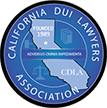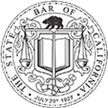Vehicular manslaughter is among the most severely punished offenses in California. The crime is committed when a person causes the death of another person by operating a vehicle unlawfully or negligently. The gravity of the offense is determined by the level of negligence involved, the driver’s criminal record, and whether he/she was intoxicated when the crime occurred. Thus, you could face charges for either gross or ordinary negligence, attracting a maximum penalty of six years in prison and hefty fines.
If you face charges for vehicular manslaughter in Bakersfield, it is advisable to hire the help of an experienced DUI attorney. A reasonable attorney will ensure that your charges are dropped or reduced. At Bakersfield DUI Attorneys, we have the necessary skills and experience to advise and help you obtain a favorable outcome for your case.
California Vehicular Manslaughter Legal Definition
California law against vehicular manslaughter is under the state’s Penal Code section 192(c). The offense occurs when a driver operates a vehicle negligently and unlawfully, thereby causing another person to lose his/her life. You can commit vehicular manslaughter in several ways.
For example, a distracted driver crashes onto another vehicle, causing a severe accident in which a passenger in the other dies on the spot. The prosecutor will study the facts of the defendant’s case in detail to decide the most appropriate charge.
Causing another person’s death when committing a felony offense while operating a car is a different offense from vehicular manslaughter. If details of your case fall under this category, you are likely to face charges for California murder, provided under PC 187.
Again, committing vehicular manslaughter when operating under the effects of drugs or alcohol is charged as either vehicular manslaughter while intoxicated (PC 191.5(b)) or gross vehicular manslaughter when drunk or drugged (PC 191.5(a))
The law against manslaughter is under California PC 192. The definition of manslaughter is the unlawful killing of a human being without malice. There are three kinds of this offense under California law: voluntary, involuntary, and vehicular manslaughter. Of the three manslaughter offenses, only vehicular manslaughter occurs while the offender is operating a car.
Vehicular manslaughter is further divided into three categories:
- With gross negligence, California PC 192(c)(1)
- Misdemeanor/ordinary vehicular manslaughter, California PC 192(c)(2)
- Vehicular manslaughter for monetary gain, California PC 192(c)(3)
Let us look into each of these offenses separately to understand them even better.
Gross Negligence Vehicular Manslaughter
To be convicted under California PC 192(c)(1), the prosecutor will be required to prove these facts of the offense beyond a reasonable doubt:
- That while you were operating a car, you committed an infraction or misdemeanor or engaged in a legal action in a way that could have caused the life of a person
- That your actions at the time were dangerous to the life and wellbeing of other people under the circumstances
- That your actions were in gross negligence
- That your actions caused the life of a person
Let’s discuss some of the elements further:
Infraction, Misdemeanor, or Unlawful Act That Might Result in Death
For a court to find you guilty under California PC 192(c), you must have committed either of the following:
- A crime covered under California criminal laws that isn’t a felony
- A lawful act that is expected to result in death
Example: Talking on the phone while driving is a form of distracted driving and an infraction under California laws. It is also an act that could cause you to lose control of your vehicle, causing a fatal accident. If anyone is found guilty of committing an offense like this, he/she is likely to face charges for vehicular manslaughter for causing the life of a person when committing a crime while operating a vehicle.
Note that charges for vehicular manslaughter will only occur if the unlawful act you were engaged in is not a felony. If you caused the death of a person when committing a California felony, you would face charges for murder as under the state’s felony-murder rules.
Gross Negligence
The distinguishing factor between the first type of California vehicular manslaughter and the second and third type is gross negligence. The prosecutor must prove in court that you committed the offense in gross negligence for the court to find you guilty of gross negligence vehicular manslaughter. If you acted with ordinary negligence, you would face charges for ordinary vehicular manslaughter.
Gross negligence will apply if your actions are portrayed above ordinary inattentiveness, carelessness, and mistake in judgment. You are guilty of gross negligence when:
- You act in a reckless manner that creates a higher risk of significant bodily injury or death.
- You should have reasonably known that acting that way might create a risk like that.
Gross negligence would apply if you act differently than an ordinarily cautious person would have done in a similar situation, and your actions indicate a great disregard for life and the consequences of your behavior.
For example, speeding while driving down a highway is an act that could result in loss of lives or great bodily injury if it resulted in an accident. A person who causes the death of another person through an accident caused through speeding can face charges for gross negligence vehicular manslaughter.
Resulting in the Death of a Person
Vehicular manslaughter is not complete until the offense results in the death of a person. In this case, the loss of life must be a natural, direct, and probable result of your actions. It means that the loss should be the type of consequence an ordinary person would anticipate if they acted the way you did.
Example: Joe receives the keys to his new car from his father on the night of his 16th birthday. Out of excitement, he immediately invites his friends for a ride. After a few hours of some fun, Joe decides to try a daring move he always wanted to do. He decides to drive the wrong way on a freeway for the fun of it. Joe’s friends protest, but he hears none of it.
Joe’s behavior on the road is reckless and dangerous enough to cause a fatal accident. If a fatal accident occurs, Joe will face charges for gross negligence vehicular manslaughter.
Note that the defendant’s gross negligence doesn’t have to be the sole cause of death, provided that it’s a significant factor in causing the death.
Misdemeanor or Ordinary Vehicular Manslaughter
The following are elements of ordinary vehicular manslaughter, which the prosecutor must prove in court for you to be found guilty:
- That as you were driving a car, you committed an infraction or misdemeanor, or legal action in an illegal manner
- That how you committed the act was risky to the safety of others under the circumstances.
- That you committed the act with ordinary negligence
- That your actions resulted in the death of a person
Gross and ordinary negligence are very different in that ordinary negligence only requires the defendant to have failed to apply reasonable care to prevent a reasonably foreseeable danger to another person.
Vehicular Manslaughter for Monetary Gain
If you commit vehicular manslaughter for monetary benefits, you will be charged under California PC 192(c)(3). The elements of this offense are:
- That as you were driving a car, you knowingly participated or caused an accident.
- You did that knowing that your reason for causing the accident was to file a false auto insurance claim to obtain benefits fraudulently.
- You did that intending to defraud your insurance provider or another party
- The accident resulted in the death of a person
Under this law, it is a criminal offense to accidentally kill a person while intentionally crashing your vehicle to defraud an insurance company.
Penalties for a California Vehicular Manslaughter Conviction
The penalties you are likely to receive after a vehicular manslaughter conviction in California depend on the type of vehicular manslaughter offense you have committed. Here are the penalties you are likely to receive under California laws:
Penalties for Gross Negligence Vehicular Manslaughter
California PC 192(c)(1) is mainly a wobbler in California. It means that the prosecutor can charge it as a felony or misdemeanor, based on the facts of your case and your criminal record.
If you receive a misdemeanor conviction under this law, you are likely to receive these penalties:
- Summary or misdemeanor probation
- A maximum jail sentence of one year
- A maximum fine of $1,000
On the other hand, if you receive a felony conviction under this law, you are likely to receive the following penalties:
- Formal or felony probation
- Prison term of two, four, or six years
- A maximum fine of $10,000
Penalties for Ordinary Vehicular Manslaughter
Misdemeanor or ordinary vehicular manslaughter attracts the following penalties after conviction:
- Summary or misdemeanor probation
- A maximum jail sentence of one year
- A maximum fine of $1,000
Penalties for Vehicular Manslaughter for Monetary Gains
Vehicular manslaughter for monetary gains is a felony in California and attracts the following penalties:
- A maximum fine of $10,000
- Prison term of four, six, or ten years
Other Consequences for a California Vehicular Manslaughter Conviction
If you’re found guilty of vehicular manslaughter in California, you will likely face more consequences than the criminal penalties stipulated in the law. Some of these consequences will affect several aspects of your life. They include:
Driver License Suspension
The most likely consequence of every vehicle-related offense in California is the loss of one’s driving privileges. After arrest, the police will automatically confiscate your driver’s license and await the criminal court and DMV’s decision. It means that you will no longer be able to drive your car or any other vehicle until your driving privileges are reinstated.
If you’re convicted for vehicular manslaughter in California, the DMV automatically suspends your driver’s license. The suspension will apply regardless of the type of vehicular manslaughter offense you have committed. The DMV will not allow you to drive in the state for at least three years from the day it will suspend your license.
If you’re found driving a vehicle on a revoked or suspended license in California, you might face more penalties under California VC 14601. The offense is a misdemeanor and could attract a jail time of six months and a fine of not more than $1,000.
How To Fight Charges for California Vehicular Manslaughter
Vehicular manslaughter is among the most severely punished offenses in California. Other than penalties provided under the state laws, you are likely to face life-changing consequences, like a damaging criminal record and inability to find suitable employment. Thus, it is advisable to hire the best criminal defense services and fight your charges to avoid a conviction. Working alongside a skilled and experienced DUI attorney can make a significant difference in the outcome of your case. Your attorney will have plenty of defense strategies that could enable him/her to compel the court to either reduce or drop your charges.
Some of these strategies are:
You Didn’t Act With Negligence
The first two types of California vehicular manslaughter provided under California PC 192(c) require a defendant to have acted with negligence, whether ordinary or gross. Therefore, if you did not act with negligence, the court might not find you guilty under this law.
The prosecutor studies the report provided by the police regarding your action to determine whether or not you acted with negligence and your degree of negligence.
Negligence could be very challenging to prove, especially in cases involving vehicular manslaughter. The prosecutor needs to demonstrate in court how the behavior of a sensible person differs from your behavior at the time and how much you deviated from standard behavior when you committed the offense.
Even though it sounds pretty objective, defining normal behavior can be pretty subjective, making it hard for even the smartest prosecutor to prove beyond a reasonable doubt that you acted in negligence.
Your attorney can take advantage of this to convince the court that you didn’t act with negligence. Drivers are required to take great caution while on the road. If something out of the ordinary occurs, drivers must make rapid decisions for a better outcome of the situation.
It could have been that you did not act as quickly as you should have acted under the circumstances. That doesn’t mean that you were negligent.
If you face charges for gross negligence vehicular manslaughter, your attorney can work hard to have the court reduce your charges by arguing that you acted with ordinary negligence and not gross negligence. You could be convicted of vehicular manslaughter in the end, but the penalties will not be as severe as those you would have received if you were convicted for gross negligence.
Your Actions Didn’t Result in Death
As previously mentioned, all elements of vehicular manslaughter in its legal definition must be satisfied beyond a reasonable doubt for you to be found guilty of the offense. Thus, if your actions did not cause the other person’s death, you might not be guilty under California PC 192(c).
At times the police do not get it right when determining the cause and effects, especially in car accidents. A person might lose his/her life in an accident but still be determined to have had an underlying issue that is later ruled to be the leading cause of their death.
You might have negligently driven your vehicle and caused an accident in which a person lost his/her life, but there’s a chance that something else and not your negligence caused their death. If you believe that this is what happened in your case, your attorney can fight your charges to have the court reduce them to more lenient charges.
In cases like these, the defense hires a reconstruction expert witness to determine the exact details of the case and the actual cause of the death. The expert’s testimony and the aggressive defense of your attorney can compel the court to reconsider your charges.
You Experienced an Unexpected Emergency
No one is well prepared for sudden emergencies. Thus, it is impossible to behave rationally under the circumstances. If you accidentally caused an accident that resulted in the death of a person, you may not be guilty of vehicular manslaughter. Your attorney only needs to convince the jury that you faced an emergency that prompted you to act the way you did, which seemed reasonable under the situation.
Vehicular manslaughter laws mandate drivers to use similar judgment and care when facing an emergency that a typically reasonable person would apply in similar circumstances. If this is what happened, you may not be found guilty under California PC 192(c).
For example, if you suddenly veered off the road into the next lane to evade hitting an animal or a large object on the road, you might have acted negligently from the look of it. However, your action was necessary at that instance. Your attorney can convince the court that your actions were not careless enough to sustain vehicular manslaughter charges. If you caused a fatal accident, the court might reduce your charges to more lenient charges.
California Vehicular Manslaughter and Related Charges
California law has certain crimes that are pursued instead of or alongside vehicular manslaughter. Some of these crimes are:
Vehicular Manslaughter While Intoxicated
P-C 191.5 provides the guidelines against vehicular manslaughter while intoxicated. The elements for this offense are similar to those of vehicular manslaughter. The difference is that vehicular manslaughter while intoxicated crimes are completed because the defendant was under the influence of drugs or alcohol.
Gross or ordinary negligence determines the penalties vehicular manslaughter while intoxicated offenders will face. With ordinary negligence, PC 191.5 is a wobbler offense, which means that it can be prosecuted as either a felony or misdemeanor. As a misdemeanor, you are likely to receive a maximum of one year in jail if convicted. As a felony, you are likely to receive a prison term of sixteen months, two or three years if convicted.
With gross negligence, PC 191.5 is a felony punishable by a prison term of four, six, or ten years.
Committing vehicular manslaughter while intoxicated introduces stiffer penalties than vehicular manslaughter. If you face charges under California PC 191.5, your attorney can have your charges reduced to vehicular manslaughter if the prosecutor cannot prove to court beyond reasonable doubt that you were under the effects of drugs or alcohol.
DUI/ Watson Murder
Watson murder occurs when a person with a previous DUI conviction causes the death of another person while operating a vehicle under the effects of drugs or alcohol. The offense is covered under California PC 187. For you to face charges for DUI murder, the following elements must be true:
- That you committed an intentional action that resulted in the death of another (in this case, the deliberate action is drunk or drugged driving)
- That the natural consequences of your actions were dangerous to the well-being of others
- That you intentionally acted the way you did with a conscious disregard of that danger
The defendant’s intent to kill is not necessary in a case of Watson/DUI murder.
The penalties for California DUI/Watson murder are:
- Fifteen years to life in state prison
- A maximum fine of $10,000
- A strike on your criminal record as under California Three-Strike law
Find a Bakersfield DUI Attorney Near Me
If you face charges for vehicular manslaughter in Bakersfield, CA, it helps find the best DUI defense services. Vehicular manslaughter is a serious offense that could attract severe criminal and non-criminal consequences. The right DUI attorney will take you through the legal process, protect your rights, and plan a solid defense to fight your charges. At Bakersfield DUI Attorneys, we have skills and experience in handling all kinds of DUI-related cases. We might be able to compel the court to either reduce or drop your charges. Call us at 661-215-5660 and let us discuss the details of your case.







